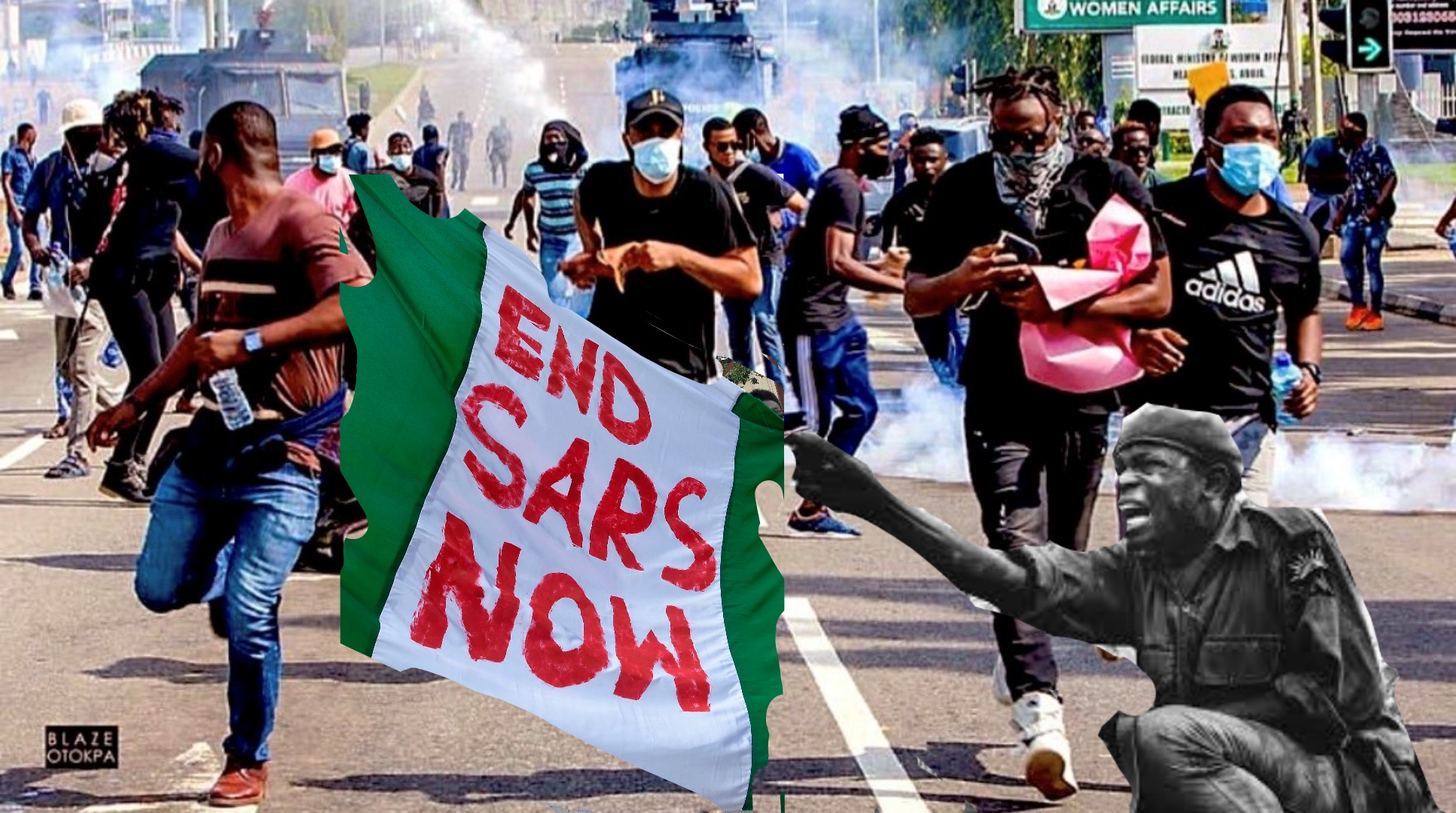In Nigeria, a multitude of factors have contributed to conflicts and tension among ethnic, religious, and political groups. Nationalistic sentiments, whether based on religion, politics, or ethnicity, have sparked riots and clashes over issues such as power distribution, economic decline, resource allocation, and ethnoreligious differences. While some of these conflicts could have been prevented, others were likely inevitable. Regardless, these riots and wars will forever mark Nigeria’s rich history. Naijatatafo has compiled a list of the top five historical riots and wars in Nigeria that nearly tore the country apart. It’s worth noting that these events occurred after the merger of the northern and southern protectorates in 1914.
7. End SARS Protest
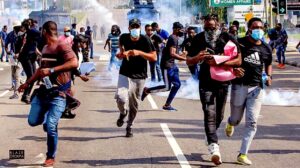
This is one of the riots that shook Nigeria in the year 2020. It all started after some members of a Unit known as SARS (Special Anti-Robbery Squad), k*lled a young man who was under their custody. The father the young man cried out for help, people couldn’t bear the level of injustice anymore, so the Nigerian youths started a protest which was known as the “End SARS Protest”.
The protest began like just another little protest that was going to end in no time, but it quickly escalated. The police tried to scare the youths by arresting and allegedly unlawfully k*lling some of the youths, but this only made matters worse. The Nigerian youths refused to back down, they came out in large numbers in different parts of the country.
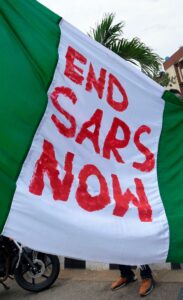
It was the first time that the Nigerian youths had united in such manner. During the protest, many police stations were destroyed, lives were lost, young youths with a promising future were k*lled, some members of the police force also lost their lives due to retaliation from the youths. The police were too scared to come out and perform their duties. Soon, there was no security in the country and hoodlums took advantage of the protest and started robbing innocent people of their belongings.
There was chaos in the country, to the extent that the government had to send the military to Lagos to contain the situation. This is what allegedly led to k*lliing of innocent unarmed protesters at Lekki Toll Gate Lagos by some trigger-happy soldiers. Nigerians are still crying for justice of the innocent people that lost their lives till date.
6. Kaduna Riots of 2000
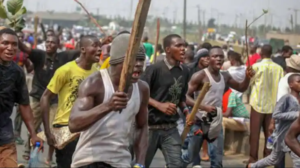
In 2000, Kaduna State in northern Nigeria was the site of religious riots between Christians and Muslims that were sparked by the introduction of sharia law. The riots erupted on February 21, 2000 and claimed between 200 and 1000 lives. During the protests, some Christian youth smashed vehicle windshields and disrupted traffic in the Kaduna metropolis. In response, Muslim rioters looted and vandalized homes, banks, shops, and businesses owned mostly by Igbo traders from eastern Nigeria.
In Aba, v*olence erupted after the bodies of Aba natives were transported from Kaduna. Furious over the deaths, Aba residents attacked Muslim Hausa residents and set fire to a mosque. Violence also occurred in nearby towns of Owerri and Umuahia. According to Tannaic, President Olugusen Obasanjo urged both Christians and Muslims to refrain from violence, while the government dispatched elite troops to Aba. Kaduna State Governor Ahmad Maikarfi imposed a citywide curfew from dusk to dawn and put the military and police on high alert.
5. Aba Women’s Riot of 1929
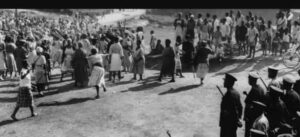
The “Aba Women’s Riots of 1929” in British colonial history, also known as the “Women’s War” in Igbo history, was a riot or war led by women in the provinces of Calabar and Owerri in southeastern Nigeria in November and December of 1929. The underlying cause of the riots dates back to January 1, 1914, when the first Nigerian colonial governor, Lord Lugard, established the system of indirect rule in Southern Nigeria.
The British administrators ruled locally through “warrant chiefs,” who were Igbo individuals appointed by the governor. Over time, the appointed warrant chiefs became increasingly oppressive, and the colonial administrators’ announcement of plans to impose special taxes on the Igbo market women added to the local sense of grievance. The Aba women’s riots were successful in forcing colonial authorities to abandon their tax plans for the market women and to reduce the power of the warrant chiefs.
4. Adubi War of 1918
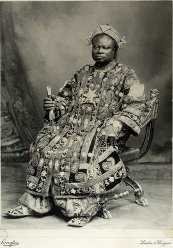
The Egba Uprising, also known as the Adubi War, occurred between June and August in 1918 in Abeokuta, the current capital of Ogun State, Nigeria. The war was sparked by the British colonial government’s introduction of a taxation system that imposed direct taxes on the Egba people, along with the cancellation of Abeokuta’s independence. Over 30,000 Egba people took up arms against the colonial officials in Abeokuta during the Adubi war, resulting in the destruction of numerous railway and telegraph lines in the southern part of the region.
3. Kano Riot of 1953
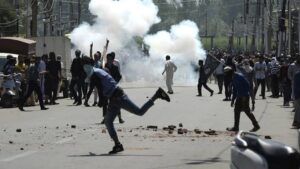
The Kano riot of 1953, another historical riot/war in Nigeria, was sparked by a political disagreement. In March 1953, Chief Anthony Enahoro, a member of the Action Group (AG) in the House of Representatives, proposed a motion requesting self-government for Nigeria by 1956. The leader of the Northern People’s Congress (NPC), Sir Ahmadu Bello, proposed an amendment for self-government to be granted “as soon as practicable,” causing tension between Northern and Southern leaders. After members of the NPC were booed and insulted in Lagos, Northern leaders sought revenge for the humiliation in Kano. While in Kano, a riot broke out, resulting in numerous casualt*es and injuries. This event is now referred to as the Kano riot of 1953.
2. Operation Wetie: Western Region Riots of 1962

The third event on our list of historical riots/wars in Nigeria is Operation Wetie, which was a series of riots that took place in the Western Region of Nigeria in the 1960s. The term “Operation Wetie” was used to describe the practice of dousing politicians, their supporters, and their properties with petrol and setting them on fire.
The riots began with disagreements within the Action Group party between Chief Obafemi Awolowo, the former Premier of the Western Region, and his deputy, Chief Samuel Ladoke Akintola. After losing his bid for Prime Minister, Awolowo returned to the Western Region as the leader of the opposition in the federal parliament. While Akintola became the new Premier of the Western Region, Awolowo continued to lead the Action Group.
However, Akintola did not agree with Awolowo’s decision to retain his post as party leader, which led to a division in the party. This division caused unrest in the Western Region, which eventually led to viol*nce and loss of life, with political opponents and their families being targeted and properties destroyed. As a result, a state of emergency was declared in the Western Region, marking the first time such a measure had been taken in Nigeria to curb viol*nce.
1. Nigerian Civil War/ Biafran War

The Biafran War, also known as the Nigerian Civil War, erupted from July 6, 1967, to January 15, 1970, due to the attempt by the southeastern provinces of Nigeria to secede as the self-proclaimed Republic of Biafra. Nigeria was created by the British as a colonial entity divided between a predominantly Muslim north and a mainly Christian and animist south.
Following independence in 1960, the country was partitioned into three provinces based on tribal lines: the Hausa and Fulani in the north, Yoruba in the southwest, and Igbo in the southeast. Tribal tensions escalated following a military coup in 1966 that brought General Aguiyi-Ironsi, an Igbo, to power as Head-of-State.
A few months later, a counter coup was led by a northerner. Aguiyi-Ironsi was k*lled, and widespread reprisals were unleashed against the Igbo. Fearing marginalization within the state, the Igbo-majority province declared its independence as the Republic of Biafra on May 30, 1967. Although Biafran forces initially pushed back the Nigerian army, a stalemate ensued after a year of fighting.
The Republic of Biafra lost its main source of revenue, the oil fields, and was unable to import food due to lack of funds. This led to severe malnutrition, and an estimated one million Biafrans died.
On January 11, 1970, Nigerian forces captured the provincial capital of Owerri, one of the
last Biafran strongholds, and Ojukwu, the Biafran leader, fled to the Ivory
Coast. Four days later, Biafra surrendered to Nigeria.
